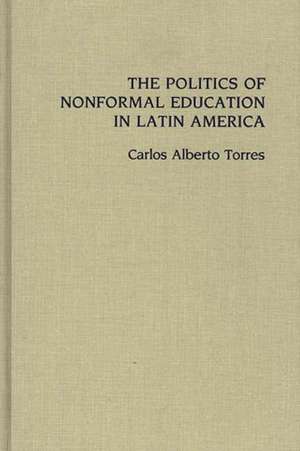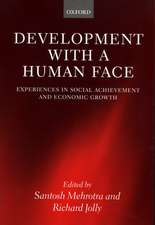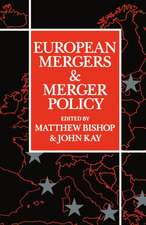The Politics of Nonformal Education in Latin America
Autor Carlos Alberto Torresen Limba Engleză Hardback – 19 mar 1990 – vârsta până la 17 ani
Preț: 436.73 lei
Preț vechi: 707.15 lei
-38% Nou
Puncte Express: 655
Preț estimativ în valută:
83.57€ • 87.49$ • 69.15£
83.57€ • 87.49$ • 69.15£
Carte tipărită la comandă
Livrare economică 07-21 aprilie
Preluare comenzi: 021 569.72.76
Specificații
ISBN-13: 9780275934194
ISBN-10: 0275934195
Pagini: 204
Dimensiuni: 156 x 235 x 13 mm
Greutate: 0.46 kg
Ediția:New.
Editura: Bloomsbury Publishing
Colecția Praeger
Locul publicării:New York, United States
ISBN-10: 0275934195
Pagini: 204
Dimensiuni: 156 x 235 x 13 mm
Greutate: 0.46 kg
Ediția:New.
Editura: Bloomsbury Publishing
Colecția Praeger
Locul publicării:New York, United States
Notă biografică
CARLOS ALBERTO TORRES is Assistant Professor in the Department of Educational Foundations at the University of Alberta, Edmonton. Widely published in Mexico and Latin America, he is the author or editor of twelve previous works in Spanish as well as numerous articles, reviews, and papers. A forthcomingbook, with Daniel A. Morales-Gomez in English, is entitled The State, Corporatist Politics, and Educational Policy Making in Mexico (New York: Praeger, 1990).
Cuprins
Foreword: How We Should Study Adult EducationPreface: A Political Sociology of Education in Latin AmericaParadigms of Nonformal EducationThe State, Educational Policy, and the Popular Sectors in Latin AmericaThe Political Economy of Adult Education in Latin AmericaNational Policies of Adult Education in Mexico, 1976-1988Adult Education and the Transition to Socialism in Cuba, Nicaragua, and GrenadaToward a Political Sociology of Nonformal Education: An Agenda for Research on Adult Education PolicymakingAdult Education Policies in Latin America and the Caribbean: Theoeretical-Methodological PerspectivesThe Politics of Nonformal Education in Latin America: Summary and ConclusionsBibliographyIndex



















